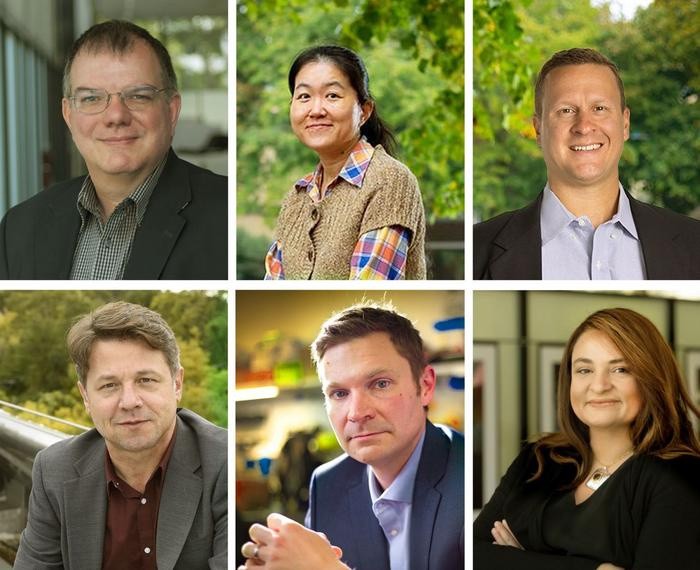Illinois Tech Secures $750,000 NSF Grant to Tackle Stormwater Infrastructure Inequities

CHICAGO-November 28, 2023 - A multidisciplinary team of researchers at Illinois Institute of Technology (Illinois Tech), led by Professor of Political Science Matthew Shapiro, has been awarded a $750,000 Strengthening American Infrastructure grant by the National Science Foundation (NSF). The groundbreaking initiative is set to address the critical issue of stormwater infrastructure inequities in Chicago.
Along with Shapiro, Associate Professor of Social Science Hao Huang, Associate Professor and Director of the Landscape Architecture and Urbanism Program Maria Villalobos Hernandez, Professor of Landscape Architecture and Urbanism Ron Henderson, Assistant Professor of Civil, Architectural, and Environmental Engineering David Lampert, and Arthur W. Hill Endowed Chair in Sustainability Brent Stephens aim to improve public understanding of stormwater infrastructure disparities and develop viable policy solutions.
The urgency of this project was highlighted in July 2023, when Chicago experienced a record nine inches of rainfall in one day, overwhelming the city's aging stormwater systems.
"We have old stormwater infrastructure, and it badly needs updates," says Shapiro. "In the Chicago case, we also have access-related disparities between areas: the North versus the South Side."
Shapiro continues, "South Side stormwater infrastructure is a little more out of date than other places, so we're interested in trying to understand the nature of those disparities and whether or not they're significant, whether or not there are potential solutions including green infrastructure and funding for fixing it, and whether or not the local residents would embrace those kinds of changes."
Finding a solution requires involving those who are most affected by flooding. In part, this means informing the public about the nature of water infrastructure and gauging their willingness to accept the various changes and the costs associated with those changes, since any solutions would likely be funded by taxpayers.
Another aspect includes getting citizens to gather the necessary data to determine which areas are in most need of help. Some early ideas include developing an app-the team has already hired an Illinois Tech computer science student to design it-allowing residents to report flooding events and using sensors with models to simulate rainfall and runoff events. This app could also be used to direct Chicago residents to a 311 line that would facilitate the reporting of flood events.
The idea is to gather as many data points as possible to find out which areas need the most help, and how flooding events in certain areas of the city affect other parts of the city.
"Part of the NSF mandate is bringing science to the general public," Shapiro says. "When we proposed this, we were very excited about the possibility of having local community members come to Illinois Tech, not only to learn about the science, but to actually learn about how Illinois Tech brings key opportunities to the local community. We are now searching for willing high school teachers-science teachers, whether it's at De La Salle or somewhere else close or far within the city-to include a module into their curricula focusing on water and bringing their students to Illinois Tech."
What could potential solutions look like?
Ideally, Shapiro would like to see an informed and engaged public identify and address the most-needed areas of the city that, up until now, have been on the short end of equity in wastewater infrastructure, as well as green options to upgrade infrastructure.
"At the end of this project, if we were to bring greater awareness to the general public about the nature of the problem while mitigating the differences between certain communities in Chicago in terms of water infrastructure problems, that would be a home run," Shapiro says.
From Digital Models to 3D-Printed Homes: Jaspreet Kaur Lall Explains How the Innovation Changes the Construction Industry

Future Belongs to Green Construction: Sampath Kumar Paspunoori Explains One of the Key Trends in the Construction Industry

Kamala Harris' Campaign Ad Uses Iconic Visuals from Carrie Mae Weems to Connect with Voters

Historic Ancient Roman Ruins in Baalbek Remain Strong After Israeli Air Strikes; Locals Seek Cultural Protection

4 Ways to Honor Departed Loved Ones in Your Home Design







